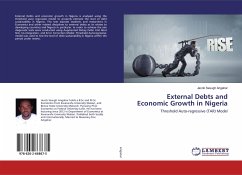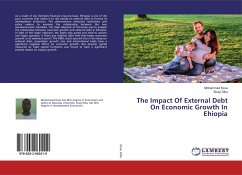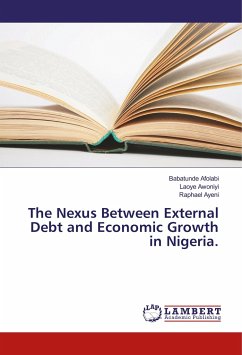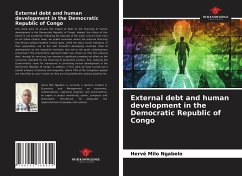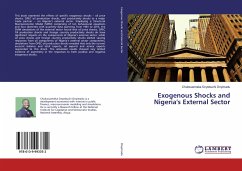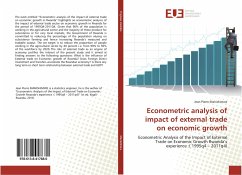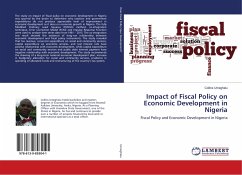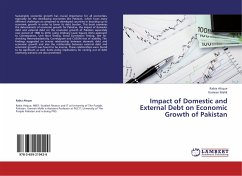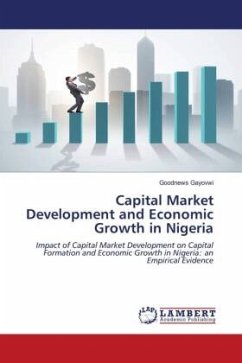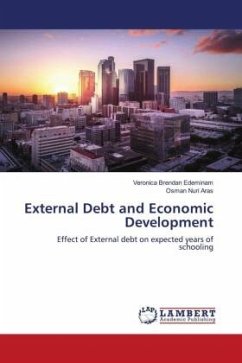
External Debt and Economic Development
Effect of External debt on expected years of schooling
Versandkostenfrei!
Versandfertig in 6-10 Tagen
29,99 €
inkl. MwSt.

PAYBACK Punkte
15 °P sammeln!
This study investigates the effect of public debt on expected years of schooling in Nigeria and Ghana using annual time series data from 1990 to 2019 sourced from World Bank, and United Nations Development Programme. Trend analysis was done for external debt stock and expected years of schooling variables. Other variables in the study are external debt servicing stock and real effective exchange rate. Pre-econometric test for unit root was undertaken using Phillips-Perron and Augmented Dickey-Fuller unit root test methods. In both countries, borrowing for infrastructural projects is prioritize...
This study investigates the effect of public debt on expected years of schooling in Nigeria and Ghana using annual time series data from 1990 to 2019 sourced from World Bank, and United Nations Development Programme. Trend analysis was done for external debt stock and expected years of schooling variables. Other variables in the study are external debt servicing stock and real effective exchange rate. Pre-econometric test for unit root was undertaken using Phillips-Perron and Augmented Dickey-Fuller unit root test methods. In both countries, borrowing for infrastructural projects is prioritized over borrowing for investment in social sectors. Even where there is an investment in the social sector using external debt, it is not enough to create a significant effect. As recommendation from the findings, external debt should be used to improve expected years of schooling as much as it is used for infrastructural investment. This is because of the importance of developing the manpower that will manage the infrastructure that is financed by external debt.



